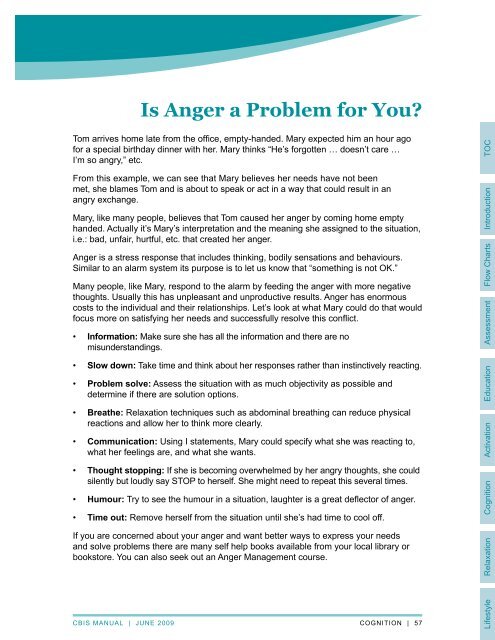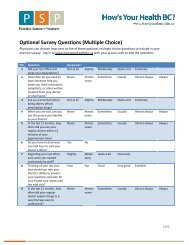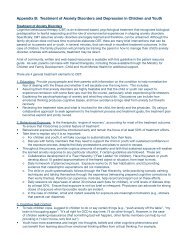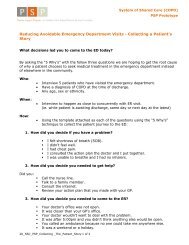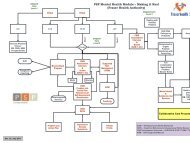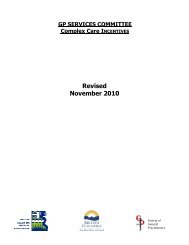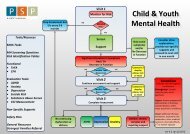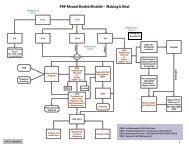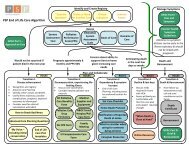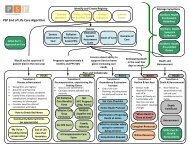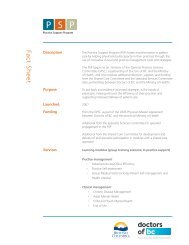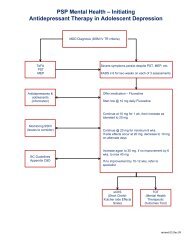cognitive behavioural interpersonal skills manual - GPSC
cognitive behavioural interpersonal skills manual - GPSC
cognitive behavioural interpersonal skills manual - GPSC
- No tags were found...
Create successful ePaper yourself
Turn your PDF publications into a flip-book with our unique Google optimized e-Paper software.
Is Anger a Problem for You?Tom arrives home late from the office, empty-handed. Mary expected him an hour agofor a special birthday dinner with her. Mary thinks “He’s forgotten … doesn’t care …I’m so angry,” etc.From this example, we can see that Mary believes her needs have not beenmet, she blames Tom and is about to speak or act in a way that could result in anangry exchange.Mary, like many people, believes that Tom caused her anger by coming home emptyhanded. Actually it’s Mary’s interpretation and the meaning she assigned to the situation,i.e.: bad, unfair, hurtful, etc. that created her anger.Anger is a stress response that includes thinking, bodily sensations and behaviours.Similar to an alarm system its purpose is to let us know that “something is not OK.”Many people, like Mary, respond to the alarm by feeding the anger with more negativethoughts. Usually this has unpleasant and unproductive results. Anger has enormouscosts to the individual and their relationships. Let’s look at what Mary could do that wouldfocus more on satisfying her needs and successfully resolve this conflict.• Information:.Make sure she has all the information and there are nomisunderstandings.• Slow down: Take time and think about her responses rather than instinctively reacting.• Problem solve: Assess the situation with as much objectivity as possible anddetermine if there are solution options.• Breathe: Relaxation techniques such as abdominal breathing can reduce physicalreactions and allow her to think more clearly.• Communication: Using I statements, Mary could specify what she was reacting to,what her feelings are, and what she wants.• Thought stopping: If she is becoming overwhelmed by her angry thoughts, she couldsilently but loudly say STOP to herself. She might need to repeat this several times.• Humour: Try to see the humour in a situation, laughter is a great deflector of anger.• Time out: Remove herself from the situation until she’s had time to cool off.If you are concerned about your anger and want better ways to express your needsand solve problems there are many self help books available from your local library orbookstore. You can also seek out an Anger Management course.CBIS Manual | JunE 2009cognition | 57


